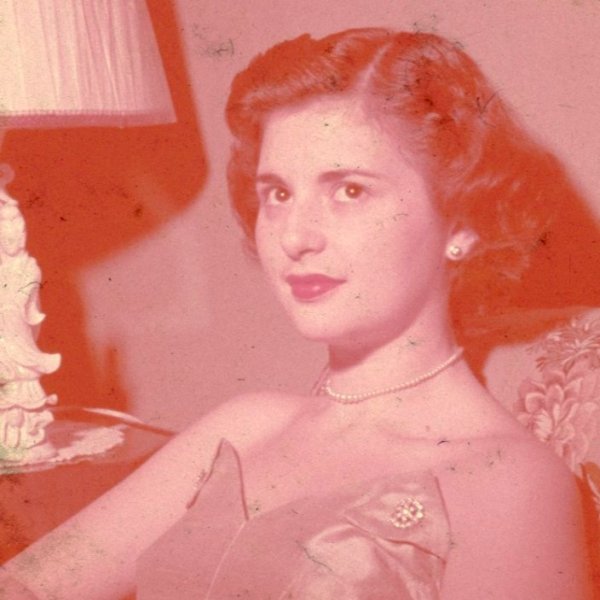Is it nature or nurture?
I woke up Jorge in the middle of the night. Anxious, I nudged him awake because I didn’t want to be alone with sadness. Usually people paint the emotion in a negative light or avoid talking about the spiraling sentiment completely. On social media, updates are usually brimming with optimism, political opinions, or sharp wit, but occasionally there is that “downer” update. It’s that one comment or “Breaking News” update that makes you realize how small you are on our pale blue dot. Don’t worry, this post isn’t about sadness but about spinning it into something beautiful.
My grandmother, Lyllian, died this past Saturday at 1:40 pm. When my Dad told me the news, I was split. Part of me was full of sorrow but the rest felt relieved. Although I didn’t know her as well as I would have liked, I know she wouldn’t have wanted to leave Earth the way destiny had chosen. From the get go, Lyllian was fiercely independent. Orphaned at a young age, she was left completely alone in Cuba. A wealthy family sponsored her education and she was able to attend a boarding school in New York. Eventually, she met my grandfather who at the time was working as a bell boy in a grand hotel. Shortly after they married, my Dad along with his brother and sister were born. On the brink of the 1960’s, and when her youngest, Benjamin, was still in diapers, her husband left, and my grandmother was forced to raise three children by herself.
I am not sure if she was always distant. I’d like to think her hardships and will to provide for her children created a thick shell around her person. A barrier so well guarded that I never penetrated it. Although nurturing and kind, she was aloof and serious. The one thing that brightened Lyllian’s expression was to talk about her travels. While raising her children she received a steady string of modest promotions from a steady company, which allowed her to do what Lyllian had always wanted: to travel. She would go alone and occasionally share her journey with strangers on her path but never for long.
In her mature years, she lived in Pompano, watching the boats drive by the inter-coastal waterway that her apartment overlooked. Little did she know Alzheimer’s disease was slowly chipping away at the memories she cherished most. It was possibly the worse prognosis for someone so content with their own company and being independent. Lyllian would have hated to be in the hospital unable to remember or do anything without a distance voice reminding her and strong hands aiding her. That’s why I was relieved. Although it had been two-years since she knew who I was, when I would visit her I could feel her desperate despair. The constant battle to hang onto shreds of consciousness long decayed.
It was the night after she had passed away that a new wave of emotion hit me. The sad news pried open the flood gates for all unfortunate happenings to overwhelm me. Once I had woken up Jorge, he listened patiently as I wrestled my way to the surface. Everything from my grandmother, past family struggles, the destruction in Gaza, the MH17 crash, and even my evening’s failed attempt at beet pizza dough was weighing on me.
After Jorge listened to my long list of grievances he said: “Be sad for your grandmother and embrace that sadness, don’t fight it. But you can’t be sad about everything that’s happening in the world. There will always be people in terrible circumstances, and they can’t all keep you up at night.” While he was speaking, I realized that my ability to empathize was too epic. My compassion threshold had reached a level that made it impossible to control. Only later, did I wonder whether it had something to do with writing.
“It is not true that we have only one life to love, if we can read, we can live as many lives and as many kinds of lives as we wish.” —S.I. Hayakawa
A couple of months ago, I heard of a study from 2011 that talked about people’s ability to empathize and how it may relate to fiction. They spoke about it almost exclusively as something that needs to be learned and fine-tuned. There may be a connection between people’s ability to empathize and how much fiction they have read. According to this study, those that read novels were more able to put themselves in the position of others. If that’s the case, I think I might have read way too much 18th century fiction or re-devoured Harry Potter too often.
It could be argued that a “good writer” is one that helps you live many lives through characters. They’re an enabler that allows you to lose yourself in the mind and feelings of another while sitting on a bus or on the beach. Someone who turns sadness, struggle, and sorrow into something beautiful: empathy. If only one thing comes out of the long hours I spend writing books, I hope it’s to help people try to better understand one another.

